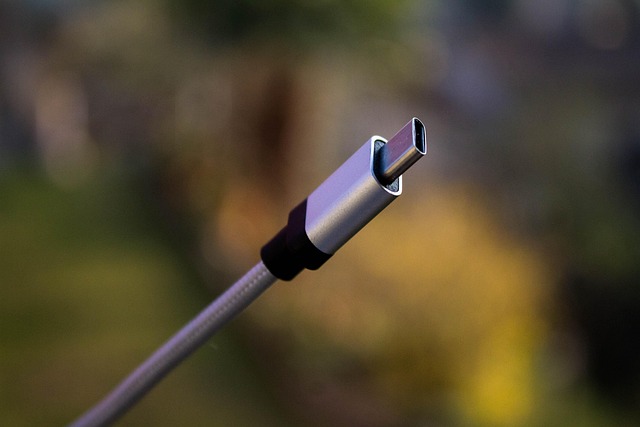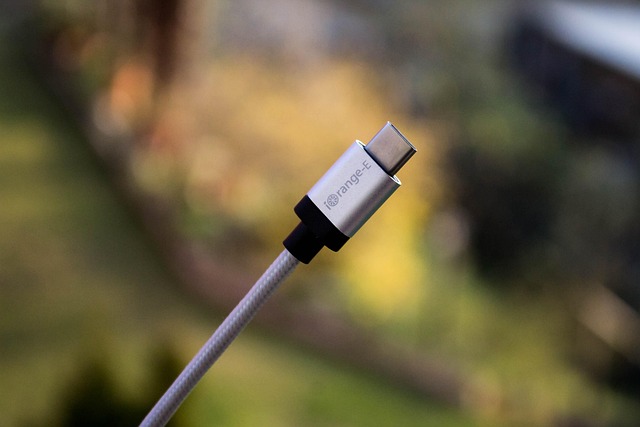Understanding Crypto Wallets: A Comprehensive Guide
Author: Jameson Richman Expert
Published On: 2025-05-18
Prepared by Jameson Richman and our team of experts with over a decade of experience in cryptocurrency and digital asset analysis. Learn more about us.
In the rapidly evolving world of digital currencies, understanding crypto wallets is crucial for anyone looking to safely store, send, and receive cryptocurrencies. Crypto wallets serve as a bridge between you and the blockchain, enabling you to manage your digital assets securely. With the rise of Bitcoin, Ethereum, and countless altcoins, having a reliable crypto wallet is more important than ever. This guide aims to provide a detailed overview of crypto wallets, their types, features, and security considerations to help you make informed decisions.
Crypto wallets come in various forms, each with its own unique features and security measures. Understanding the different types of wallets available can help you choose the right one for your needs. From hot wallets that are connected to the internet to cold wallets that store your assets offline, the choice can significantly impact your crypto investment strategy. Furthermore, as scams and hacks become more prevalent, it is essential to prioritize security when selecting a wallet. This article will delve into the nuances of wallet types, features to consider, and best practices for securing your digital assets.

Types of Crypto Wallets
One of the most popular types of wallets is the software wallet. These wallets can be installed on your computer or mobile device, making them easily accessible for everyday transactions. However, they are also more vulnerable to hacking attempts due to their online connectivity. Software wallets can be further categorized into:
- Desktop Wallets: Installed on a personal computer, they offer a high level of security as long as the computer is protected. Examples include Exodus and Electrum, which allow users to manage multiple cryptocurrencies while providing a user-friendly interface.
- Mobile Wallets: Designed for smartphones, they offer convenience for transactions on the go. Examples include Trust Wallet and Mycelium, which often include features such as QR code scanning for quick payments and additional security measures like biometric authentication.
On the other hand, hardware wallets, like Ledger and Trezor, provide a higher level of security by storing your private keys offline. This makes them a preferred option for long-term investors who want to minimize their exposure to online threats. They are immune to malware and hacking attempts that can compromise online wallets, making them the safest option for storing large amounts of cryptocurrency.
Additionally, there are web wallets, which are accessed through a web browser and are convenient for users who trade frequently. While they offer ease of access, they also pose higher security risks compared to software and hardware wallets. Another emerging type is the mobile wallet, which allows users to conduct transactions using their smartphones. These wallets often incorporate features like QR code scanning for quick payments, making them ideal for in-person transactions. Furthermore, many mobile wallets integrate additional functionalities such as biometric authentication, enhancing security while maintaining convenience.
Exchange Wallets: A Double-Edged Sword
For those looking to trade or earn crypto actively, exchanges like Binance, MEXC, Bitget, and Bybit offer built-in wallets for their users. These exchange wallets are convenient for trading but may not provide the same level of security as dedicated wallets. While they allow for quick deposits and withdrawals, they also expose users to potential exchange hacks.
When using exchange wallets, it's crucial to enable two-factor authentication (2FA) and regularly update passwords to protect your assets. Additionally, be aware of the withdrawal policies and potential fees associated with transferring funds out of exchange wallets. It's advisable to keep only the funds needed for trading on exchanges and to withdraw the majority of your assets to a more secure wallet type.
Features to Consider
The importance of understanding crypto wallets extends beyond just security. Different wallets come with varying features that can enhance your trading experience. For example, some wallets allow for the management of multiple cryptocurrencies, enabling users to diversify their portfolios without the need for multiple accounts. Other key features to consider include:
- Real-Time Transaction Tracking: Many wallets provide transaction history and analytics, which can be invaluable for active traders looking to make informed decisions based on market trends.
- Support for Staking: Some wallets allow users to stake their assets, providing opportunities for passive income through the crypto assets you hold, thus enabling users to earn rewards without selling their holdings.
- Integration with Decentralized Exchanges (DEXs): Look for wallets that offer seamless integration with DEXs to facilitate easy trading without the need for intermediaries, providing greater autonomy over your transactions.

Choosing the Right Wallet
In addition to knowing the types of wallets, it is also essential to understand how to choose the right wallet for your specific needs. Consider factors such as ease of use, security features, compatibility with different cryptocurrencies, and whether you need access to the wallet on multiple devices. The best wallet for you will depend on how you plan to use it, whether for everyday transactions, long-term investments, or active trading.
Some wallets come with built-in features that enhance user experience, such as integration with decentralized finance (DeFi) applications, which can open doors to earning opportunities. Additionally, wallets that support hardware security modules (HSM) can provide an extra layer of protection for your private keys. Always evaluate your investment strategy and choose a wallet that aligns with your goals, whether those are maximizing security, enhancing convenience, or providing trading capabilities.
Prioritizing Security
Security should always be your top priority when choosing a crypto wallet. Even with the most advanced security measures, no wallet is entirely foolproof. Users must take personal responsibility for securing their assets. This includes regularly updating software, using strong and unique passwords, and being cautious of phishing scams. Always remember to back up your wallet and store your recovery phrases securely in a physical location away from your devices. Consider using a password manager to help manage your credentials safely, and regularly review your wallet's security settings to ensure optimal protection.
Moreover, consider utilizing multi-signature wallets for added security, which require multiple private keys to authorize a transaction, effectively reducing the risk of unauthorized access. These wallets are particularly beneficial for businesses or individuals who want an extra layer of security for their crypto holdings.
Conclusion
In conclusion, understanding crypto wallets is a fundamental aspect of engaging with cryptocurrencies. Whether you are a beginner or an experienced trader, choosing the right wallet can significantly impact your overall experience and security. With the right knowledge and tools at your disposal, you can navigate the world of digital currencies with confidence.
Always stay informed about the latest developments in the crypto space, and don't hesitate to leverage the resources available to you. Remember, your crypto journey starts with a secure and reliable wallet. For more insights on how to maximize profits with different trading strategies and tools, consider reading articles like Maximize Profit with Binance Futures Grid Bot. Engaging with community forums and resources can provide support and further insights into effective wallet management and trading practices.